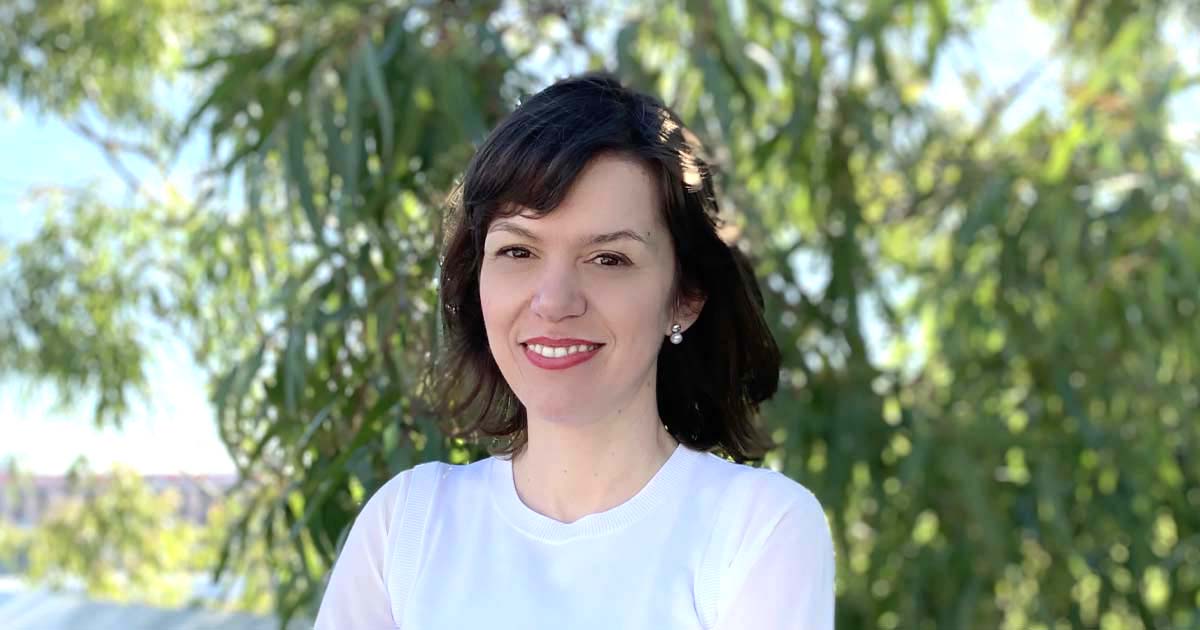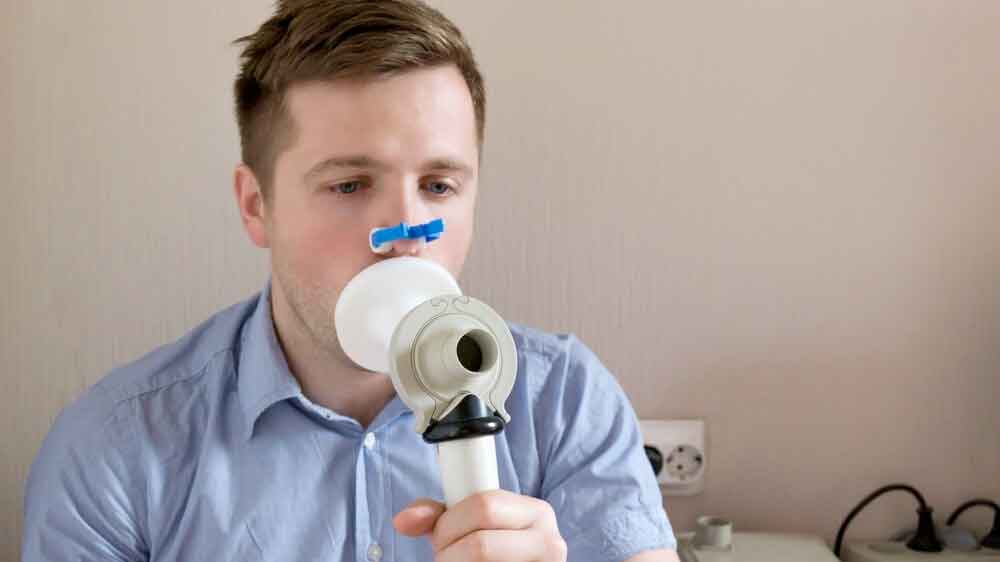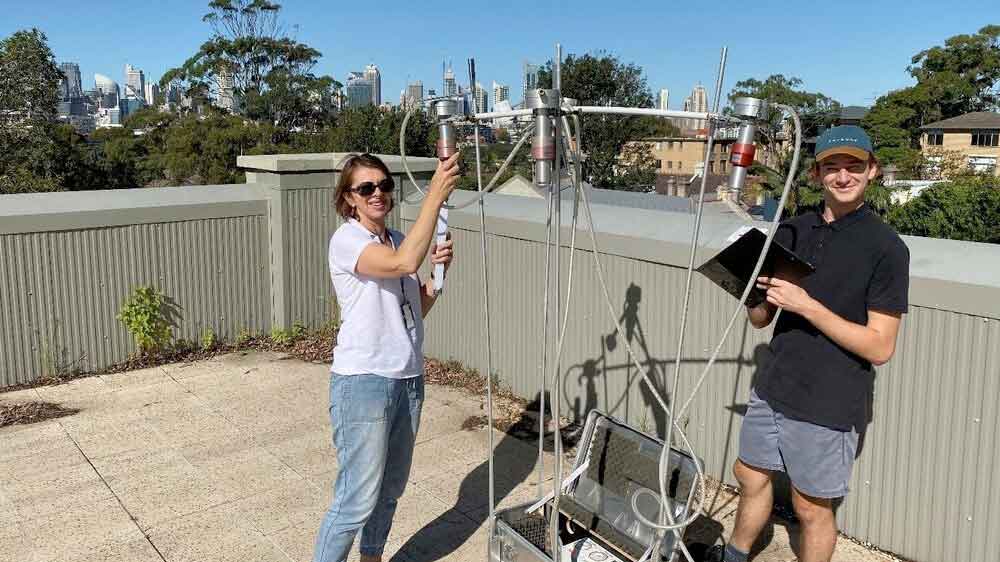The Woolcock Institute of Medical Research

Reflections on asthma – the researcher
Dr Biljana Cvetkovski has been researching asthma for 20 years, as a student, a research assistant, and a project manager and researcher at the Woolcock Institute of Medical Research.
In the last of our series of reflections for Asthma Week 2021, Biljana talks about the changes she's seen, her main challenges, and why it's so important for people with asthma to get involved with research.
What's your main area of research?
When people ask me what I do, I tell them I'm a researcher, but I'm not based in a laboratory.
I'm interested in better understanding the management of respiratory disease, but in a very practical, hands on way: what does asthma management mean to people on the ground? What does the GP think when they have a patient in front of them? What is the patient thinking when they walk into a pharmacy needing help?
My research started out with a focus on medicines – on understanding how people use medicines for respiratory disease. But when we asked people about how they managed their disease with medicines, it very quickly broadened to include things about how they understand what their disease is, or how their disease impacts on their life, or how can we modify their access to healthcare professionals.
So what's the key thing you've learnt in your research?
One size doesn’t fit all. So where we have guidelines that try to embrace everyone's circumstances, I never cease to be amazed about the variety of experiences people have and the stories they share with us.
Everyone's story is valuable. Sometimes people feel they have nothing to contribute to research. Everyone's lived experience is something that we as healthcare professionals and researchers can learn from.
What changes have you seen in your research over the last 20 years?
I think the biggest change is on the technological side of research. Even just the technology associated with data collection and the recruitment of research participants (for example, for clinical trials).
When I first started, we were collecting data with a pen and a clipboard. So we would stand in a pharmacy and ask questions from a printed piece of paper.
These days, data is all electronically distributed and captured. We can recruit people from all over the world. We don't need to be standing in a physical location.
Technology has certainly allowed us to reach a broader range of people to study.
What are the main challenges for you as an asthma researcher?
Even though so many things have changed over the last 20 years, there's one thing that has stayed the same – that's the challenge of recruiting people into our studies.
It's unfortunate, because one thing that has been absolutely consistent over the years: never has anyone who's taken part in our research said 'that wasn't worthwhile'.
So a real challenge is to convey to potential research participants that they will find their input valuable and worthwhile. It would be great if we could do that.
Funding is also a huge challenge. There are lots of questions that need to be answered in health, but there's a limited amount of funding available from governments and industry. Researching a question that's important to people with asthma may not be seen by funders as a priority, but that doesn't mean we shouldn't be researching that question.
We really need to find alternative ways to get our asthma research funded. The greater variety of funding sources for our research, the more likely we are to get those critical questions about asthma answered.
As a researcher, what would you like to say to people with asthma?
I would encourage anyone with asthma to volunteer for a research study, if you can. Sometimes it's as easy as filling in a questionnaire. And even a small effort like that can make a huge difference.
We need a broad range of people to participate. If our participants are the same types of people, the message we are receiving will be the same. In order to really understand asthma and develop more effective treatments for everyone, we need more people to take part in our studies and asthma research more broadly. It's a simple equation, but one that may not be obvious to people with asthma.
So my main message to people with asthma is: volunteer for research studies whenever you can to the best of your ability. If it means completing a survey, please do. If you have more time, volunteer for a more in-depth study.
And the benefit of modern technology is that sometimes you don't need to be in the same city or state as the researchers. With technology like video conferencing you can take part remotely and we can capture more people's experience than was possible in the past.
It's the contributions of people with asthma to research that really makes a change: their input is the key to making things better. We need them to tell us what's important to them, so we know where to focus our efforts.
Interested in volunteering for a research study? Register at our volunteer portal and check out our list of current studies.
About Biljana
Dr Biljana Cvetkovski graduated with a PhD from the University of Sydney and is a researcher at the Woolcock Institute of Medical Research. She has a research interest in the patient and healthcare professional experience in managing respiratory diseases in primary care and has expertise in allergic rhinitis management. More about Biljana.
More stories from the front line
This is the final in our series of interviews for Asthma Week 2021. See the other interviews in Reflections from the asthma front line.
Find out more
- About our asthma research
- News from our respiratory research
- We’re proud to be part of the Air Nutrition – you are what you breathe campaign for Asthma Week 2021
Support our work
The Woolcock Institute of Medical research is a not-for-profit research institute. Your tax-deductible donation to the Woolcock will help us improve the quality of life for people affected by breathing disorders like asthma.
Here are some examples of what your donation can do.












